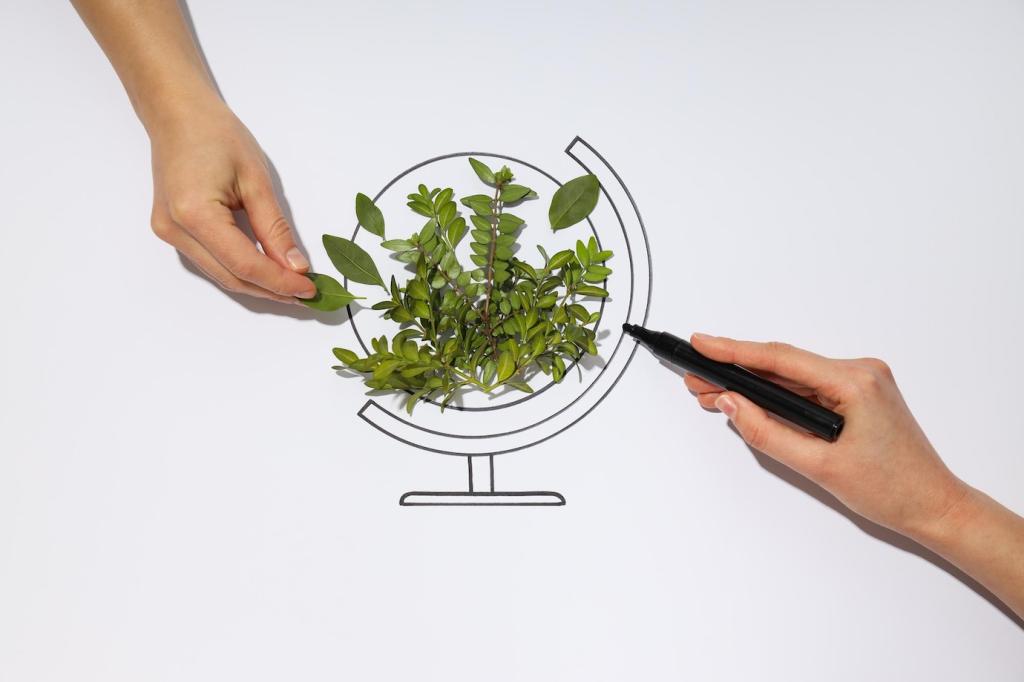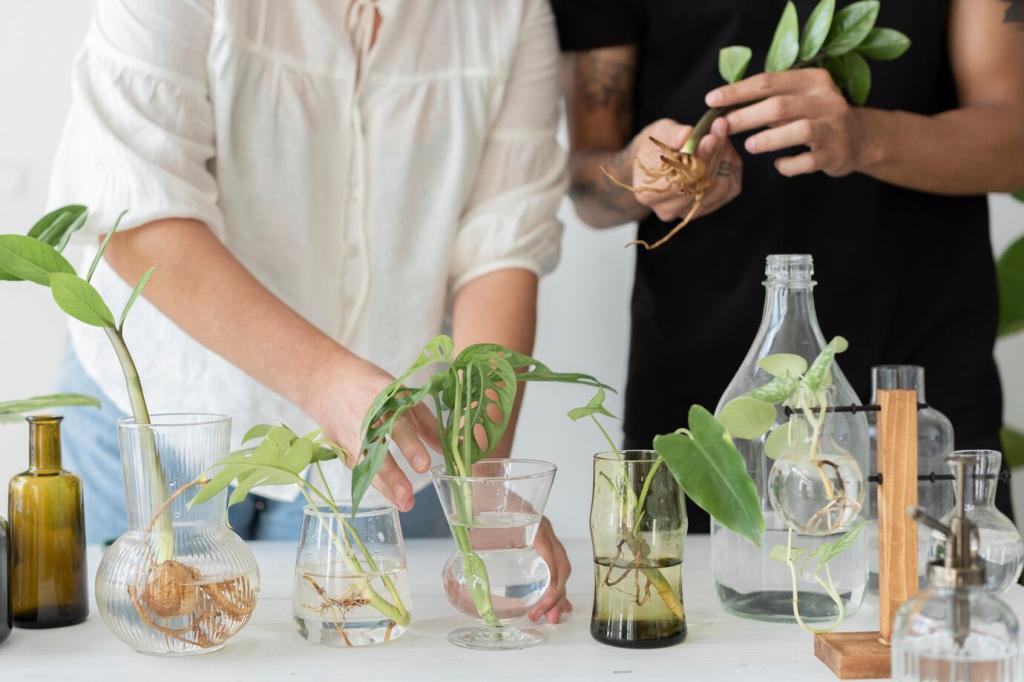Using Organic Materials for Furniture Preservation
Why Organic Preservation Matters
Drying oils like linseed and tung cure through gentle oxidation, creating a breathable, resilient film within the grain. Instead of smothering wood, they strengthen fibers, deepen figure, and age gracefully. Share your favorite oil stories or curing tips in the comments.

Material Spotlight: Oils, Waxes, and Natural Paints
Linseed, Tung, and Walnut Oils Compared
Linseed amberizes and enriches grain; tung resists moisture and cures a touch harder; walnut adds gentle warmth with a quick hand-rubbed feel. Each demands thin coats, patient wiping, and adequate airflow. Which oil do you reach for, and why?


Beeswax and Carnauba: Blending for Performance
Beeswax brings softness and scent; carnauba adds hardness and shine. Melt gently, blend, and cut with citrus solvent for a spreadable paste. A little goes far. Post your favorite ratios, and tell us how your blend behaves through the seasons.
Techniques That Respect the Grain
Dust carefully, wash only if needed with a barely damp cloth and mild soap, then dry thoroughly. Sand minimally to preserve patina and crisp edges. Always test on an inconspicuous area. What’s your favorite low-impact cleaning routine for delicate veneers?
Techniques That Respect the Grain
Build lustrous layers using a padded applicator, tiny amounts of fresh shellac, and rhythmic passes. The magic is patience: thin coats, light pressure, and occasional rest. Share a moment when your polishing suddenly clicked—what changed in your technique?
Techniques That Respect the Grain
Apply oil thinly, wait, wipe completely, and allow generous curing time. Follow with a whisper of wax for a silky, protective touch. Keep a journal of dates and mixes to track results. Would you like a printable schedule? Subscribe and we’ll send one.

Troubleshooting Organic Finishes
Sticky Oil That Won’t Cure
Usually too much oil, too cool a room, or insufficient airflow. Wipe back with a touch of citrus solvent, increase ventilation, and wait patiently. Thin next time. Have you rescued a tacky tabletop? Share your step-by-step save to help others.
Water Rings and Shellac Blush
A gentle pass with fresh ethanol on a pad can release trapped moisture in shellac. For oil-wax finishes, light warmth and re-waxing often suffice. Avoid aggressive sanding first. What subtle trick has removed white rings on your dining table?
Mold and Mildew Precautions
High humidity and heavy, uncured oil can invite trouble. Use thinner coats, choose moisture-resistant tung, and keep air moving. If needed, wipe lightly with ethanol and dry thoroughly. Tell us how you balance humid climates with safe, organic care.
Tools and Workspace Essentials
The Core Kit
Lint-free cotton rags, natural bristle brushes, shellac flakes, ethanol, a small scale, mason jars, and a soft buffing cloth form a capable set. Label everything. What humble tool surprised you with its usefulness? Drop a photo and a quick tip.
Test Panels and Note-Taking
Use offcuts to trial colors, ratios, and drying times. Photograph results in daylight, label clearly, and keep notes. Small experiments save large regrets. Want our test panel template? Subscribe and we’ll send a printable guide for your shop wall.
Seasonal Adjustments
Winter needs extra curing time; summer invites dust control and earlier cut-off times for coats. Track humidity, and avoid rushing. Your finishes will thank you. Share your climate and what adjustments made your process finally feel predictable.


An Heirloom Dresser’s Second Chance
A reader revived her grandmother’s oak dresser with thin tung oil coats and a beeswax-carnauba finish, preserving the tiny dents that tell family history. Have a similar tale? Post your photos and the recipe that made your piece glow again.

Subscribe for Monthly Recipes
From soft touch-up waxes to hard-wearing table blends, we share seasonal formulas, measured in grams for repeatability. Join our list, and reply with topics you want covered next—repairing veneer, safe stripping, or shellac dyeing with botanicals?

Ask Anything, Anytime
Stuck between oils? Unsure how long to wait before waxing? Drop your questions, and we’ll answer with practical steps. Your curiosity shapes this community. What’s the one obstacle keeping you from starting an organic preservation project today?
